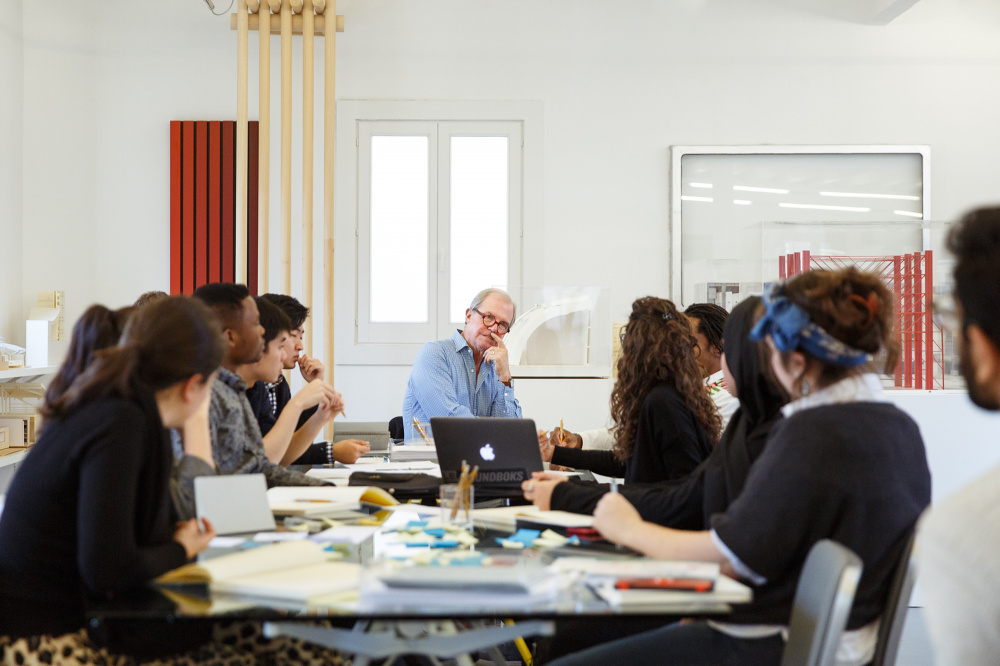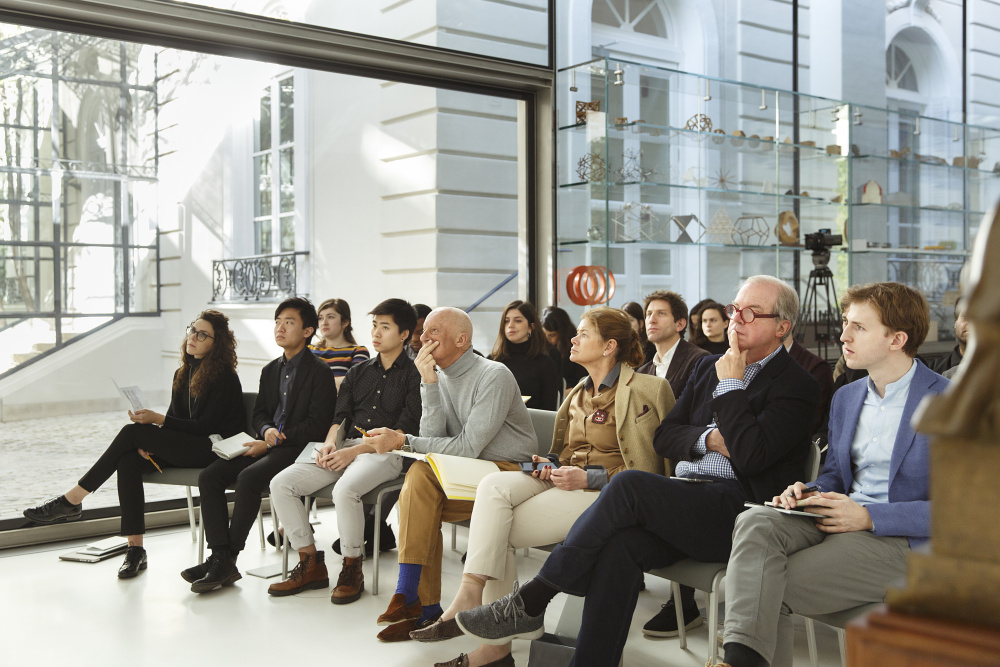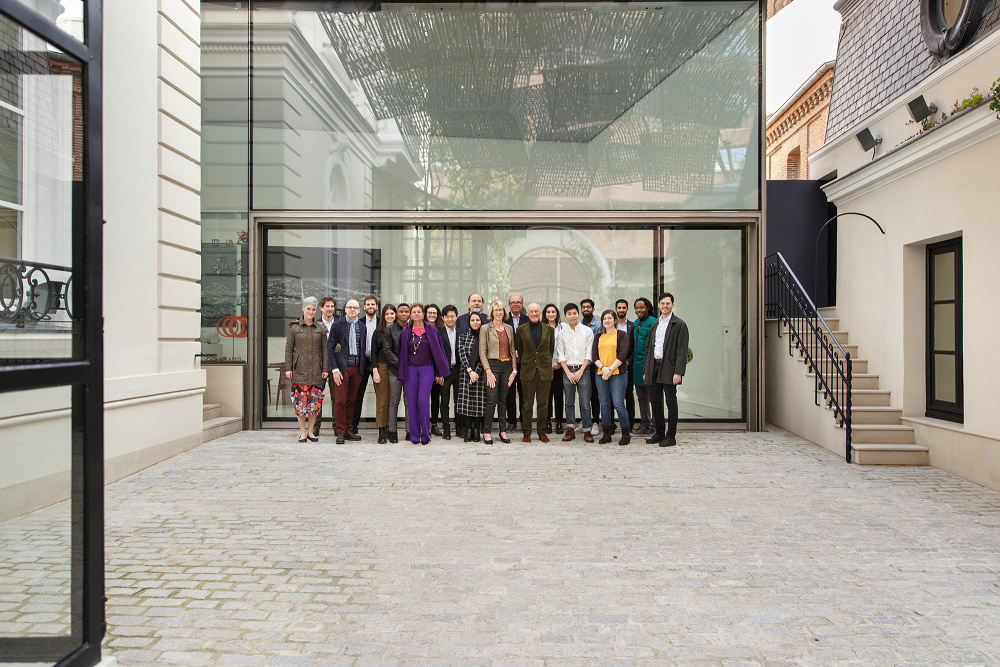Illinois Tech Student Participates in Norman Foster Workshop
For its second year, the Norman Foster Foundation Digital X Workshop took place in Madrid in February and hosted a handful of notable figures in architecture, including both Nicholas Negroponte and Norman Foster, along with 10 scholars from across the globe. Illinois Institute of Technology undergraduate Joseph Fujinami (ARCH 3rd year) was selected to participate as one of those scholars, bringing his architecture knowledge and passion to the workshop, which aimed to address problems in informal settlements and slums through burgeoning digital technologies.
“The whole theme around this workshop was how do you create a city or a community without traditional or conventional infrastructure? Sometimes the implications of infrastructure mean there’s a process of bulldozing and displacing people in these areas,” says Fujinami. “So we wanted to know how we could provide the basic necessities to these people through methods beyond just pipes and sewage lines.”

For a week, Fujinami and his fellow scholars—who came from different professional backgrounds, including architecture, engineering, and business—learned through seminars and built on abstract technological concepts to create project proposals that could improve the lives of individuals in these slums and informal settlements. The workshop’s mentors and students considered and discussed concepts like silence machines, 3D printing, and holography. But ultimately, Fujinami and his group focused their attention on growable foundations to alleviate ground-level congestion in population-dense areas like Mumbai, India.
“These would be green corridors that would allow natural ventilation and lighting, and they would be lined with walls that could be grown from the ground … we imagine them to be grown from bamboo,” says Fujinami. “Along these walls you would have hydroponic systems, which require such little energy to be maintained that you could essentially hand crank a generator to power them. Every unit would be autonomous, and they could provide resources for themselves. We thought the vegetables produced from these hydroponic systems could be sold within the community and strengthen local economies.”

The workshop was also an opportunity for students to receive new ideas and feedback from some of the world’s most impressive architectural minds, including Negroponte, Foster, and his wife Elena Ochoa Foster.
“It was a mesmerizing experience to be able to ask for feedback and their opinions,” says Fujinami. “The last day we were to present all our projects, it was a culmination of such an intense week. This presentation was given to Lord and Lady Foster, as well as Nicholas Negroponte. We received bright commendations from all of them, and I think that was such an exciting moment, especially given the short amount of time we all got to know each other and all the ideas we explored with so many brilliant people.”

Photos courtesy of the Norman Foster Foundation.